Reaching Families with Autism: Autism in the Ethiopian Community
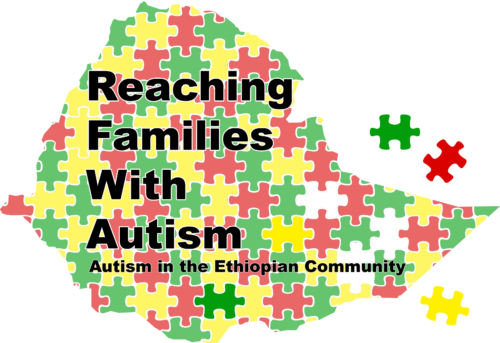
North Texas Giving Day is September 19, 2019! This year give to an organization that supports families with Autism in the Ethiopian community.
I have met some amazing people and have heard of some wonderful nonprofit organizations over the years, but I count myself blessed to have met and been fortunate to be introduced to Leah Seyoum from Reaching Families Advocacy and Support Group.
I met Leah while I was trying to find a way to promote my Let’s Learn the Amharic Alphabet book. She was going to have a booth at the Ethiopian Soccer Tournament in Dallas and graciously offered to let me sell my books at her table.
I learned so much standing next to her for those three days about her family’s journey of having children with autism, her remarkable organization and the touching work she was doing to support families that had children with developmental disabilities like autism and downs syndrome.
I never knew that an astonishing 1 in 30 East African children have autism (https://www.autismspeaks.org/what-autism) which refers to a broad range of conditions characterized by challenges with social skills, repetitive behaviors, speech and nonverbal communication. This is almost double the prevalence rate of 1/59 found in the rest of the world. (https://www.cdc.gov/ncbddd/autism/data.html)
I know that if I had not heard about how autism affects the Ethiopian community, then you may not have heard about it either. I asked Leah to sit down with me and share her story and how Reaching Families Advocacy and Support Group began.
Leah has a beautiful family with 4 children, two of whom have autism. And as she was journeying to find support and resources for her family, she reached back to help other families that were traveling down the same road behind her. She shares what she has learned and supports families all over the country.
I hope after you learn more about this great organization and this incredible woman, that you will choose to give to Reaching Families Advocacy and Support Group during this North Texas Giving Day.
What were your perceptions of autism before you had children?
Back then they did not teach us a lot about autism (in nursing school). I had never seen a child with autism in any of my nursing rotations. And what we had heard about them was they were in their own little world, they didn’t socialize, they did not want to be hugged. They wanted to stay in the corner. They did not teach us there was a spectrum.
When did you notice it in your own children?
I suspected something was wrong around 2 years old. But unfortunately, I listened to people around me that I thought knew better than me. I can say that I was on my own searching.
They were almost three when I started getting something started. For me, the school district really helped. Sometimes they don’t give a lot of information. But my district really said these kids need help and they helped a lot.
I did not just wait and see for whatever happens.
It doesn’t matter if my husband was with me or not, I am going to do what needs to be done for my kids.
Yadel is more affected and Niyab is less affected.
Was there a difference at 3?
They had their strengths and their weaknesses. Yadel had good eye contact, very affectionate, very pleasing, not as difficult to handle. Niyab had a lot of behavior issues, he was strong-willed. He wanted to get what he wanted but did not have the affection and the things that I saw with Yadel. And he did not have eye contact and still does not have eye contact.
They evaluated them simultaneously. I don’t know why they did not do them individually. They kept on telling me that Yadel is going to do good because he has very good eye contact and he has very good fine and gross motor skills. He is just about to speak, and he was going to do good.
But I felt differently because Niyab was the one that really tried to get what he wanted. He was really trying to get things done.
We had this book that had pictures of different things. He would go around and point at every picture and he wanted you to say it. And a light came on for him one day. He had an orange and I went to that page and showed him an orange. And it made sense to him. that those pictures came alive to him. He understood that the pictures represented something in real life. So, he got excited about looking at those pictures and finding that item in the room.
When they started school, a week after their 3rd birthday. They were teaching him sign and he was picking up the signs really quickly. And Yadel was not picking them up but he was pleasant, and everyone liked him, and he hugged people.
And over the years Niyab kept making progress.
How did Lila and Makaya deal with having brothers with Autism?
Very different for both of them. Because Lila was an only child. Lila did good because she understood. And she is really good with her brothers. She probably would say that she felt neglected at one point.
But one thing that I say to my children is that Niyab and Yadel are not only my responsibility, but they are our family responsibility. Our family is different because we have them. I don’t want them to think their whole life that I have to take care of my brothers. That’s not what I am saying. But I accept them for who they are, and we all strive to work together as a family by supporting them. If I am the only one supporting them then it is not going to work. As siblings, they are also responsible for supporting them.
Some people feel that he’s your brother, you have to take care of him. That is not what I am saying.
We could not go to a lot of places because we did not know how they would react. They were disappointed but that is the way it is. They were able to deal with it. But I was lucky enough to have my family here and her godmother. They took her to places that she wanted to go, did things that she wanted to do.
Mikaya was there when they were older so really that is all she knew. And all she knew was they were a part of the family and she is amazingly good with them.
Lila made it her career. She is probably one of the best therapists when working with little ones or older ones. She gets it. She lived with it.
Same with Mikaya. I am not encouraging them to go into that field, but I think it becomes second nature to them, to be around kids like that and know what they need to do. But it is their choice. And if she wants to do it, she would be really good at therapy.
What were the things that you felt you learned in the process?
I learned so much, that is why I do what I do.
Maybe that sums up what I do.
I learned a lot about myself, my husband, my community, and the system in general. How difficult it is to get help for your children. And how much early intervention is so important to give the kids a chance. And just how much denial there is.
Denying your child’s disability is about you usually. It’s about you accepting that you have a child with special needs. Not worrying about how people see you. Some people are afraid that their child may not be accepted. But some people don’t want to be that parent, they think it changes their identity, the one with a child with a disability. That is part of the denial. We don’t want to see ourselves as the parent with the “beshitenya lij”.
And we argue about if autism is a disease or a disability or a neuro-diversity. I think a lot of parents don’t accept one or the other, but whatever it is we are that child’s parent.
But what I had to accept is that it is not about me, it needs to be about them. It’s their life. I had to fight for them. I did not have the support system that there is now for other parents. Someone you can call to ask about this therapy, what do you think.

I had to navigate it on my own and create it for myself. It was hard.
I am glad that there are moms like me in the community. That can help and be there for each other.
What is the perception of the Ethiopian community when you first found out? Has that perception changed any?
There is a lot of awareness. A lot of people know someone with kids with autism. So many are affected.
1/20-30 in Ethiopia. It is higher than any other community except maybe the Somali.
In our community, we tell others only if our kids are so affected that people are going to figure it out. But it is so important to acknowledge it as early as possible.
When do you see the families in the Ethiopian community getting help?
Most of my families and the kids that I support are 4 and above. But I do have some families that figured it out early. And people are different. Some people are very proactive, and they see it and they are going to research and do something about it. Some families are not talking about it with their families, but they contact me.
A lot of the kids are able to learn the letters and numbers and so they feel that my child is intelligent so he can’t have autism. But it’s a spectrum disorder. Some children with autism are geniuses but they don’t have the functional skills. So those kids need as much intervention as the child that can’t say words or are not able to function in society. What difference does it make if they know the alphabet, but they can’t read fluently, and they don’t understand what they read? We have to address all their deficits early for everybody.
Why do you think the Ethiopian community perceives Autism the way they do?
Culturally, when something bad happens we say that it is something you did. So, you have a disabled child then it is because you sinned or it’s the devil. All those religious things. It is because of what you’re doing, but not because God gave you that child. There is a lot of guilt. I must have done this or that. And then you say I don’t want people to know.
How long have you been doing Reaching Families?
We started in 2011 as a small group, but it became a nonprofit in 2013. We have been growing since them. But in 2015 we had about 30 families. Now in 2019, we have about 140-150 children in the Dallas area mainly. We have about another 100 that we support outside of Dallas but not as intensely. We give them phone support, give them ideas of things to do and give them resources or connect them with resources. And we do phone conferences with them once a month.
We do topics each month like behavior support, how do you handle them in certain situations. Our group is not just autism, but all the developmental disabilities like down syndrome. We are not autism-specific but a majority of them have autism. Because our percentages are so high.
With Autism, they need support everywhere. They need support at home, school, with their doctors and long-term support.
Do you work by yourself?
I have a few other moms that work part-time. One mom that speaks Tigrinya fluently, so she works with the Tigrinya families primarily. But I work with all the families.
I have another mom that does the phone conferences and helps with the Amharic speaking families. I have another mom that helps with events.
I have another mom that works with other African families. They all work part-time.
Who do you work with?
So, it’s family support. The organization is not direct support with the kids. Primarily it is supporting the families. Any area that they need support. Sometimes I extend it to the kids, for example, a sibling having issues at school. I get involved.
One of the things is helping them with the language piece also. Being able to advocate and teach them the system. The other thing is being able to explain the culture to the school. I help the schools try to understand the situation at home.
I support them so that they can handle the situation better. I help with CPS if needed. Because something that is culturally acceptable to us may be perceived differently to CPS.
What are your biggest successes with reaching families?
I think we have done a lot of outreach in the community.
One of the things that we have done that I am proudest of is a lot of the kids that we have supported are in a good place. We have gotten a lot of our kids to their maximum potential. And that’s what the bottom line is. Getting them as independent as they can be.
2019 will be our last year with this grant, so we are looking at other ways to support our organization.
One of the things we would like to do is supplement the grant with a yearly event/fundraiser. Not only because it helps with our funding, but it also brings awareness.
What are 2-3 things that you would like to tell the Ethiopian community about special needs, Autism, your organization etc.?
Change the stigma. Having a child with special needs is not something to be ashamed of. These kids are a gift from god. Make it about your children not what other people think. Focus on what can I do. And there is a lot that can be done. There are a lot of resources in America. There is no reason to hide your child’s disability from your friends or family. You walk freer. There is nothing to hide.
And we are here to help you. We are here to support you. Our organization does not charge any fees to support you. Come let us help you. Let us help you figure out how to help your child.
When you see something different about your child. Even when the pediatrician discourages you. Continue using your mom’s intuition an instinct that something is up. Reach out to us, reach out to another family. Do research. Don’t stop until you have an answer. Until you find a pediatrician that will give you an answer. So many just say that they are delayed. But the minute you find out, we can get help.
What can the community do to support your organization and the families?
Attend our meetings and fundraisers. If you know a family that has a special needs child, lead them our way. Give them my card or my phone number. Give us the opportunity to support them.
Include the kids in activities. Whether it be birthdays or outings. And if that child is not able to, then get the siblings involved. Sometimes it is hard for the families to do those things because dad is working, and mom is with the child with a disability. Just pick up the sibling and take them with you.
Just be more open-minded and be careful about how you address families. Children are not autistic, they have autism. Remember they are always a child first. Be positive and encourage families and not be so judgmental about their behavior and how the families are handling the situation. Because you don’t know everything that is going on with that family.
It was so great to sit with Leah and learn more about Reaching Families Advocacy and Support Group. This organization does so much to support families with developmental disabilities. From help with the language barrier to helping with insurance companies, schools, and doctors.
I ask you this North Texas Giving Day to support not only Reaching Families Advocacy and Support Group but also the many families that have children with Autism in the Ethiopian community. Your donation will help support those children and will help raise awareness in the community about Autism and other developmental disabilities. Please Give!!


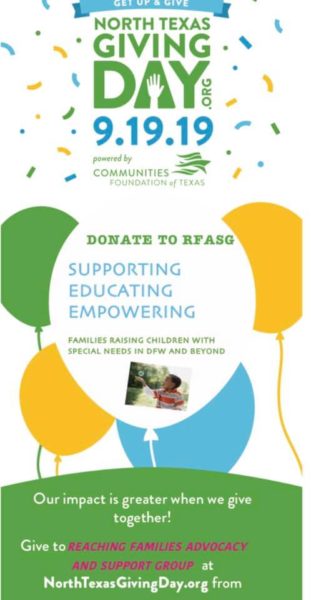

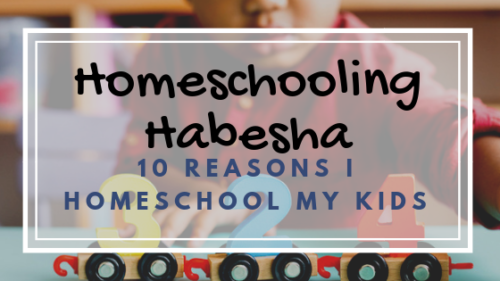

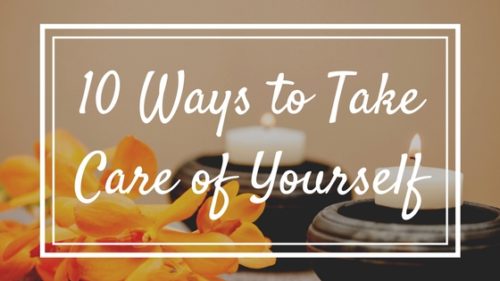
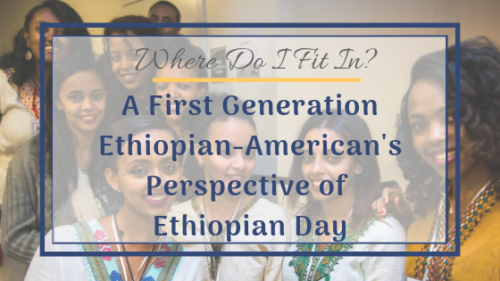
Responses